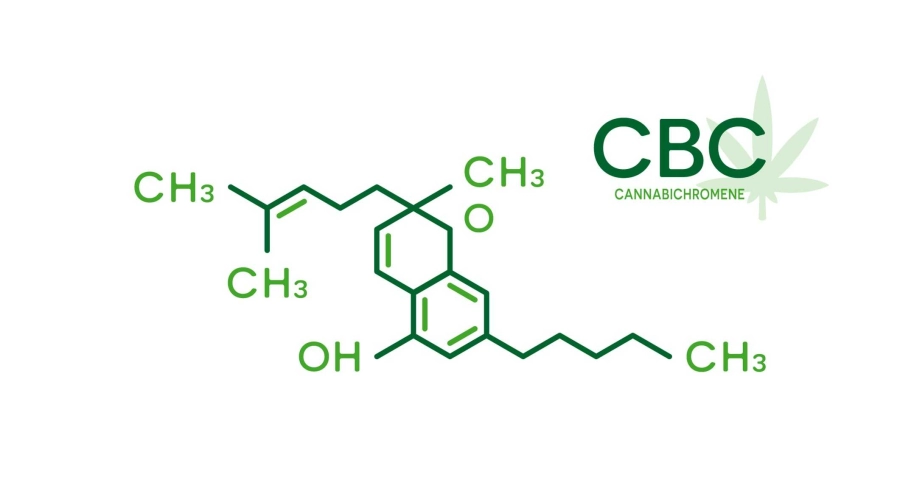Are you familiar with CBC?

What is CBC?
CBC, or cannabichromene, is one of the cannabinoids derived from CBCA (cannabinoid acid), and is a precursor to the famous CBD. CBC, which is present in large quantities in young cannabis plants, gradually degrades to CBL over time. Therefore, there is very little left in mature hemp plants ready for processing. In addition, the presence of oxygen and heat during cannabis processing also causes degradation. Ultimately, only about 1% of CBC is found in processed hemp. Therefore, it is a rare and expensive cannabinoid!
CBC, discovered in 1966, has the same basic structure as the other cannabinoids. However, unlike CBD and most other cannabinoids, it has little binding affinity for CB1 and CB2 receptors in the endocannabinoid system. CBC is unique in that it readily binds to TRPV1 and TRPA1 receptors, which are responsible for transmitting pain and inflammation signals. This is why CBC is of great interest to researchers. Many of them believe that CBC could be a drug of the future and could replace, for example, some traditional analgesics with side effects.
As CBC is a rare molecule, there is little research devoted solely to it. The limited research available on cannabichromene has only been done on animals or in vitro. Most studies have also investigated combinations of cannabinoids such as CBD with CBC.
CBC as a painkiller
CBC appears to be the analgesic of choice to treat nociceptive pain, which occurs as a result of fractures, bruises or burns. A team of researchers from Naples has tested the impact of CBD and CBC on the nociceptive pathways of rats. The study found that CBC and CBD interact with several target proteins to relieve pain. A 2011 study also demonstrated that CBC helps to combat pain and has an anti-inflammatory effect as it activates THC. This study also showed that the anti-inflammatory effect of CBC is not caused by binding to CB1 and CB2 receptors, like other cannabinoids.
CBC and cancer
A study published in 2006 assessed the efficacy of different cannabinoids at inhibiting the development of cancer cells in-vitro. The most effective molecule was found to be CBD, but CBG and CBC came second and third respectively.
CBC and acne
Finally, a 2016 study demonstrated that CBC generated promising results in terms of reducing excessive sebum production which causes acne. Therefore, this cannabinoid could be used in acne creams.
Although research on CBC is limited and not comprehensive, the molecule certainly has a bright future. You can now buy quality CBC and CBD oil in our online shop.

Leave a comment